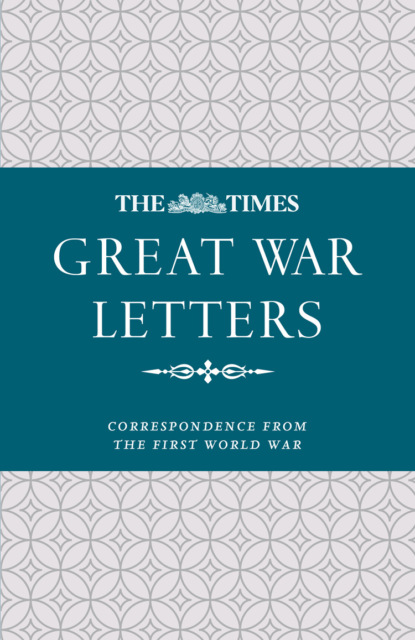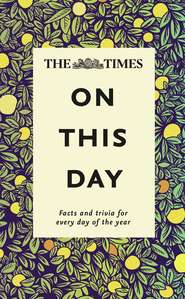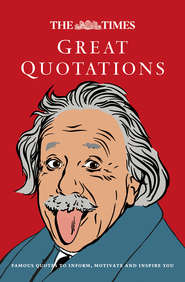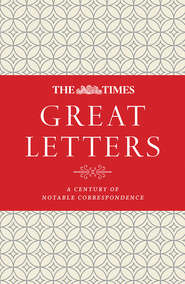По всем вопросам обращайтесь на: info@litportal.ru
(©) 2003-2024.
✖
The Times Great War Letters: Correspondence during the First World War
Автор
Год написания книги
2019
Настройки чтения
Размер шрифта
Высота строк
Поля
WAITERS AND MILLIONAIRES
22 October 1914
SIR,—AS I TALKED this morning with a distinguished German, long resident in this country, he observed:—“From our point of view it is inconceivable that your Government should permit Germans and Austrians to reside freely in your midst, knowing that in the event of a successful raid upon England they will at once rush to the help of the invaders.”
On the important question of German and Austrian waiters and managers at English hotels he said:—“It is equally inconceivable that the German people would for one moment tolerate English waiters in German hotels at any time. Hotel managers and waiters have particular opportunities for spying on visitors to hotels. They have master keys in their possession opening all the bed-rooms, and can therefore search correspondence in the absence of the visitor; they have opportunities of listening, and it should be noted,” he remarked, “that there is hardly a naval or military town, hardly any resort of British military and naval officers, hardly any strategic point of Great Britain, that is not provided with its German hotel waiters.
“As to the hardship caused by the expulsion of such as are married,” he added, “surely some of the wealthy naturalized German financiers who have so long thriven in this country might look after the wives and children of such of their compatriots as may suffer from a necessary measure of protection. I observe,” he added, “that their names, as a rule, are noticeably absent from the charitable and other funds now appearing in the newspapers, despite their recent lavish expenditure on town and country houses, racing stables, yachts, and Scottish and other shootings.”
I enclose my card and the name of my German informant.
Yours faithfully,
VIGILANT
THE NAME OF “THOMAS ATKINS”
27 October 1914
SIR,—WITH REGARD TO a letter in your issue of 24th inst., signed “Arthur Mercer,” I am afraid your correspondent’s account of why the British soldiers are called “Tommies” is incorrect; the true reason is that in all the old War Office forms of soldiers’ accounts the method company officers were to pursue in keeping them was illustrated by one finished example, and the name taken was “Thomas Atkins,” hence the name.
I am,
THE EDITOR OF “HISTORY OF 32ND LIGHT INFANTRY”
THE INDIAN WOUNDED
5 November 1914
SIR,—AS WOUNDED INDIAN soldiers are being received at Netley, the need for Indian volunteer orderlies is greater than ever. Nearly 70 members of the local Indian corps are already serving as nurses there. Leaving aside the medical members of the corps there are now very few left to answer the further call when it comes. May I therefore trespass upon the hospitality of your columns to appeal to the Indian young men residing in the United Kingdom to enlist without delay? In my humble opinion it ought to be our proud privilege to nurse the Indian soldiers back to health. Colonel Baker’s cry is for more orderlies. And in order to make up the requisite number, and also to encourage our young men, several elderly Indians occupying a high position have gone or are going to Netley as orderlies. One of them is a barrister, having a Privy Council practice, another is an educationist ex-Vice-Principal of a celebrated college for Indian Princes, and a third is a retired member of the Indian Medical Service, having served in five campaigns.
I hope that the example set by these gentlemen will infect other, with a like zeal, and that many Indians who can at all afford to do so will be equal to the emergency that has arisen. Those who desire to enlist can do so at the Indian Volunteers’ Committee’s rooms at 10, Trebovir-road near Earl’s-court, at any time during working hours.
I am, &c.,
M. K. GANDHI
In 1906, while living in South Africa, Gandhi had been a volunteer stretcher-bearer in a war against the Zulus and had become politicised by witnessing the attitudes of British troops to non-whites.
MORE HELP FOR THE WOUNDED
5 November 1914
SIR,—WE READ IN your columns and we also learn from private friends how urgently additional, and especially speedy, surgical aid is needed for the wounded in France and Belgium. A few hospital units officered entirely by women are already there and are doing splendid work. Will your readers help us to send more? The Scottish Federation of the National Union of Women’s Suffrage Societies, under the leadership of Dr. Elsie Inglis, have specialized in this form of national service. They have money enough to dispatch one complete unit, which is on the point of starting. They are keen to send at least three if the necessary funds can be obtained. They ought not to start with less that £1,000 per unit. Please help us to raise the money quickly.
Yours obediently,
MILLICENT GARRETT FAWCETT, President, N.U.W.S.S.
Fawcett was the leader of the main organisation campaigning for the right of women to vote. Her sister, Elizabeth Garrett Anderson, was the first British woman to qualify as a doctor.
THE NATION AND THE WAR
A FALSE PERSPECTIVE
9 November 1914
SIR,—IS IT NOT TIME that the Government took the country into its confidence and told us what, in its opinion, we have got to face? Unless they do, the country is in danger of being misled. Owing perhaps largely to the censorship arrangements, the mass of the people are gaining a false perspective, which is obviously having its effect on recruiting. They read in the official news—as is natural—mainly of the successes and heroism of the Allied troops, and for the rest they are fed for the most part on imaginative and incredible stories of the utter demoralization of their enemies. The determination and vigour with which the Germans are pressing their attacks and the critical nature of the struggle is thus hidden, and the great mass of the public is lulled into the belief that the war is as good as over, and that it is only a question of holding on till the Germans give way.
To anybody who understands the true position this complacent optimism is without foundation. We have got to beat, not hold, the Germans, and the task of driving them out of Belgium alone from line after line of trenches, yard by yard, mile by mile, is bound to be tremendously difficult and costly. We shall do it, it is true, but only if we spare no effort to bring every ounce of the fighting strength of the nation to bear, and that means pouring into Belgium men, more men, and ever more men, as fast as they can be trained, until a decisive superiority is established and all hope of success to the German arms disappears. An equal battle is a bloodyand a fruitless battle. Decisive superiority in numbers is the surest, the shortest, and in money and life alike the cheapest road to victory. This course, too, is the only one consistent with our pledged word to Belgium and to France.
Can we get the men voluntarily? Let the Government tell Parliament what is required, and we can then give our answer. If we cannot get them, then let us have done with fervid appeals and unfair pressure on individuals, and let us shoulder manfully as a nation our common burdens, just as at the crisis of her fate that other great Anglo-Saxon democracy did 50 years ago during the Civil War. Nothing will do more to bring about an early peace, or more to hearten our Allies and depress our enemies, than a declaration by Parliament that it intends to invoke its ancient common law right and if need be to call upon every citizen to serve the country in arms until the war is over and the battle for freedom is won.
Yours faithfully,
ARATUS
DEEDS AND NAMES
9 November 1914
SIR,—MAY I, AS AN Englishwoman and the widow of a soldier and mother of a soldier, enter my protest, through your columns, against the silence in official quarters regarding the county names of our Regular regiments which are so gloriously upholding England’s honour at the front?
Up to the time the London Scottish were officially mentioned by name for their splendid action we all submitted to this silence as being possibly a wise line to take, but now it is unbearable to know our Surreys, Hampshires, Kents, &c., are performing quite as heroic deeds as the Scots and only to come at the fact through seeing their county names in the casualty lists and through reading an occasional uncensored private letter.
I remain yours truly,
ELIZTH. BUTLER
TEMPTATIONS TO SOLDIERS
9 November 1914
SIR,— WILL YOU KINDLY allow me, through the medium of your paper, to make an appeal to my country men and women upon a most vital subject which is causing me very great uneasiness? All classes in the United Kingdom are showing a keen interest in our Forces engaged in the struggle now going on for our country’s existence as a nation, and they are being munificent in their efforts to supply the wants of our gallant soldiers and sailors fighting abroad. But I feel it my duty to point out to the civil population that putting temptation in the way of our soldiers by injudiciously treating them to drink is injurious to them and prejudicial to our chances of victory. Thousands of young recruits are now collected together in various places, and are having their work interfered with and their constitutions undermined by being tempted to drink by a friendly but thoughtless public, and also by the fact that publichouses are kept open to a late hour of the night. I cannot believe that the owners of such houses are less patriotic and more self-seeking than their fellow-subjects, or that they would deliberately, for the sake of gain, prevent our soldiers being sufficiently trained in body and nerve to enable them to undergo the strain of the arduous service which is before them—a strain which only the strongest physically and morally can be trusted to endure. I therefore beg most earnestly that publicans in particular and the public generally will do their best to prevent our young soldiers being tempted to drink. My appeal applies equally for the members of the Oversea Contingents, who have so generously and unselfishly come over here to help us in our hour of need. I hear that 300 of the Canadian Contingent are to take part in the Lord Mayor’s Show next Monday, and my sincere hope is that, while extending to them a hearty British welcome, no temptation to excess may be put in the way of these soldiers of the King, men whom the nation delights to honour, which will tend to lower them in the eyes of the world.
ROBERTS, F.M.
Field Marshal Earl Roberts was a former Commander-in-Chief of the forces. He died shortly after writing this letter, while visiting troops in France.
THE LEAGUE OF THE KHAKI BUTTON
13 November 1914
SIR,—MAY I THROUGH your paper ask your readers to join the League of the Khaki Button? There is no subscription and no expense other than to buy and wear a small khaki button. Every one wearing the button pledges himself not to stand anyone a drink or to be stood a drink until after the war is over and peace has been declared. If every one would pay for their own drinks we should save our soldiers from a great deal of temptation. The pledge of the Khaki Button is not intended to interfere in any way with hospitality in our own homes.
I am, &c.,
E. F. CROSSE, Archdeacon of Chesterfield, Founder of the League








